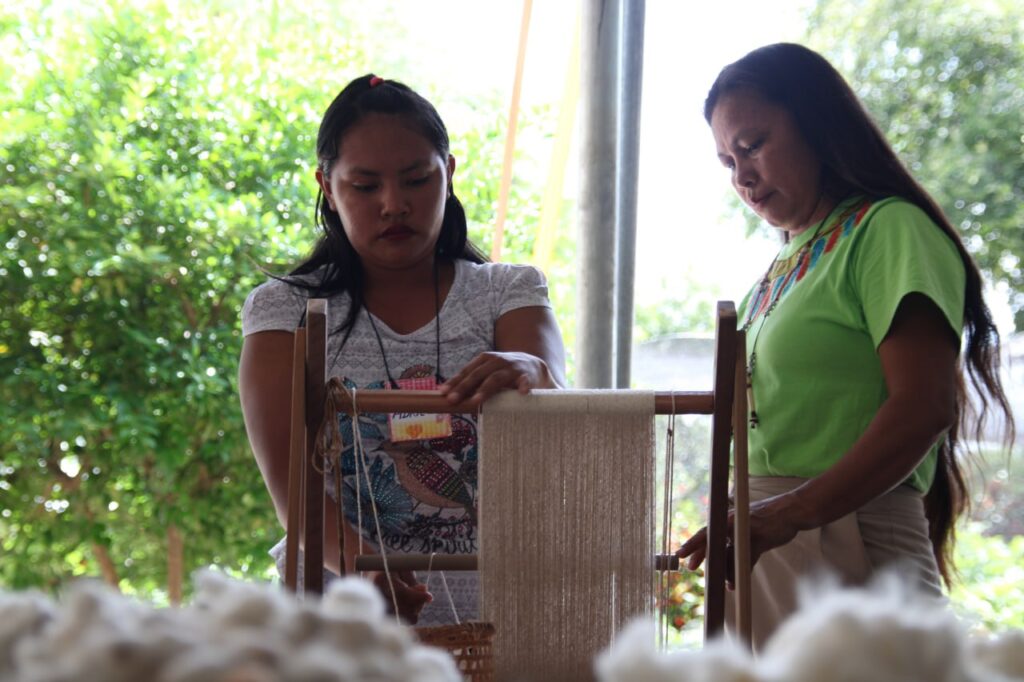World Women’s Entrepreneurship Day highlights the importance of women’s participation in the entrepreneurial sphere, emphasizing how their actions can generate economic and personal freedom. This day, celebrated on November 19, is a special occasion to value the leading role of women, especially in vulnerable contexts, where entrepreneurship becomes a fundamental tool for autonomy.
This approach is reflected in the various initiatives developed by organizations such as the Fraternity – International Humanitarian Missions (FMHI), which, through the Indigenous Cultural and Training Center (CCFI) and in partnership with the Association of Indigenous Migrants of Roraima (AMIR), the Entrepreneurial Women’s Network Institute (IRME) and international agencies such as UN Women and the Canada Fund for Local Initiatives (FCIL).
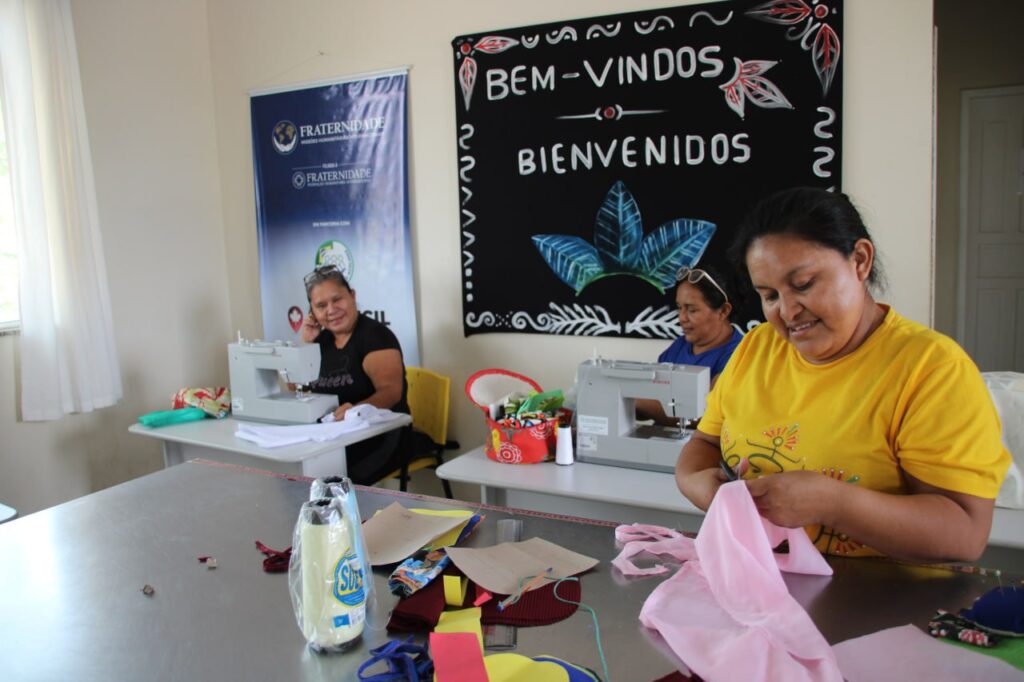
“Latin American indigenous women have been entrepreneurs all their lives. The visibility that Women’s Entrepreneurship Day can provide is an opportunity for institutions to recognize their capacity and resilience from a sincere and respectful perspective,” says Andrea Gutiérrez, a volunteer humanitarian actor at the Fraternity – Humanitarian Missions (FMHI).
Training for Autonomy
In 2023 and 2024, several free training courses were held in areas such as dressmaking, baking, entrepreneurship, haircuts and sewing. These courses not only aimed to transfer technical skills, but also to economically empower indigenous women, especially migrant and refugee women from Venezuela, Guyana and Brazil.
“The CCFI is a protected and safe space for indigenous women, where they can express their desires and build dreams spontaneously,” Andrea mentions, emphasizing that ‘the CCFI acts as a capsule that allows participants to enter and exit freely to continue weaving relationships and transformation’.
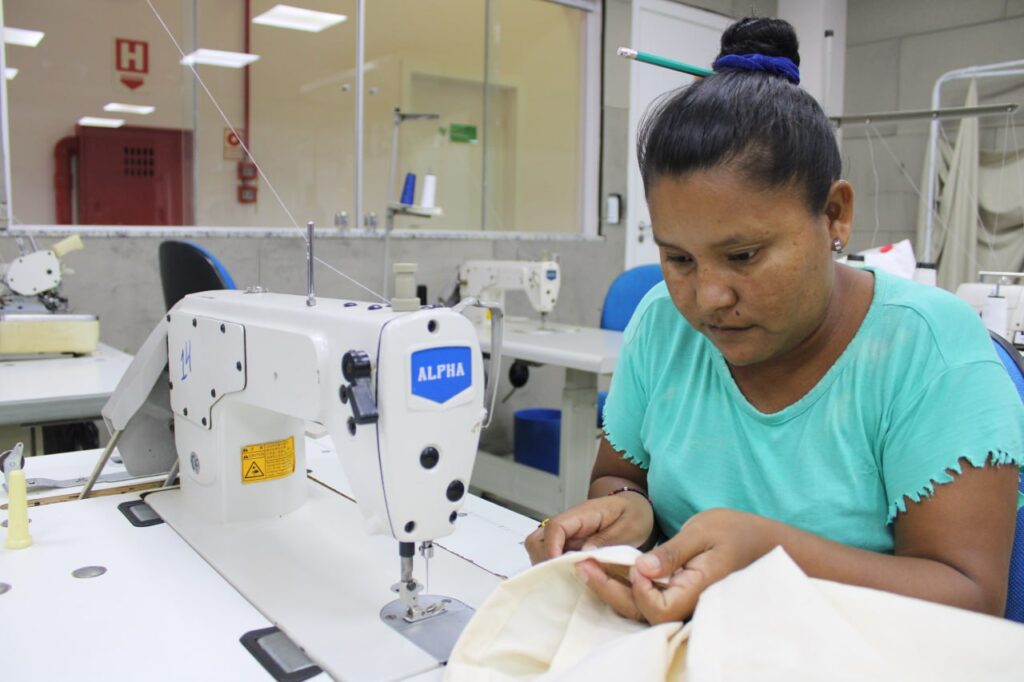
The Entrepreneurship Course for Indigenous Women is an example of this vision. Taught at the CCFI, this two-day program provided the necessary tools for creating business plans, focusing not only on business theory, but also on how the participants could overcome their fears and strengthen their communication skills. The course also highlighted the importance of forming business societies within communities, enabling women entrepreneurs to collaborate and support each other.
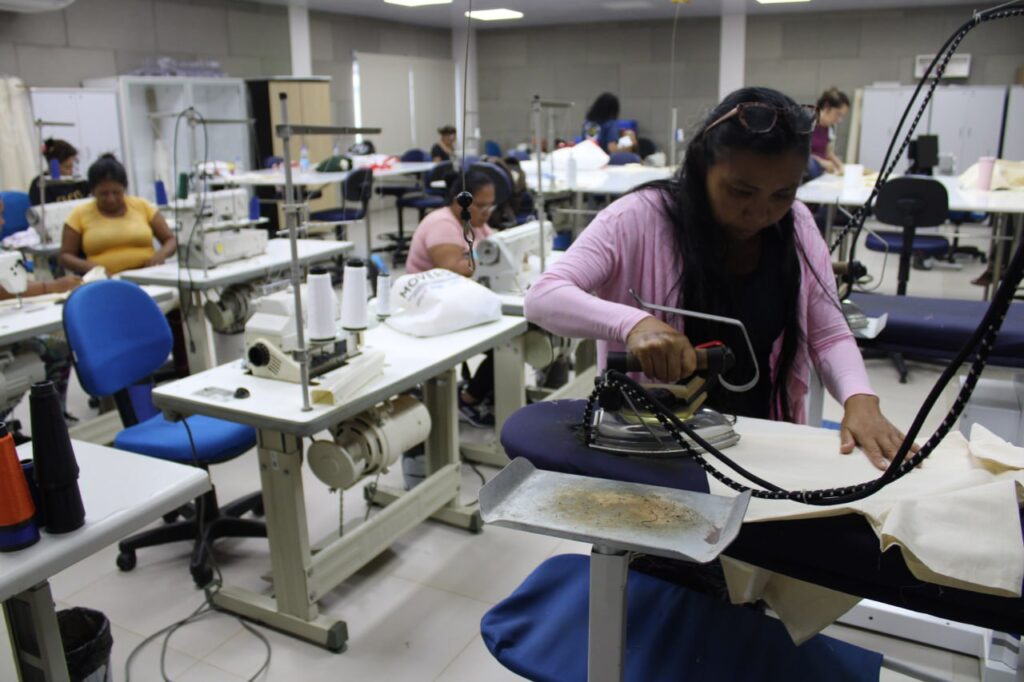
Inclusion and Job Opportunities
The initiatives developed by the Fraternity – Humanitarian Missions (FIHM) team and the partnership with the Canada Fund, which took place from August 2023 to February 2024, also provided training in various areas such as baking, screen printing and kitchen help. These activities not only improved the participants’ professional skills, but also provided them with useful tools for integration into society and the Brazilian job market.
“Over the years, indigenous women have managed to incorporate languages and forms of expression in order to connect with the world, showing their daily creativity in an increasingly forceful way,” emphasizes Andrea, adding that this creativity demonstrates motherhood, welcoming and indigenous solidarity.
For example, the screen printing course has allowed indigenous migrants to express their creativity through modern techniques, while the bakery and kitchen assistant course has trained women to enter the gastronomic sector. These training courses not only open doors in the job market, but also promote community cohesion and local development through the creation of productive units managed by the communities themselves.
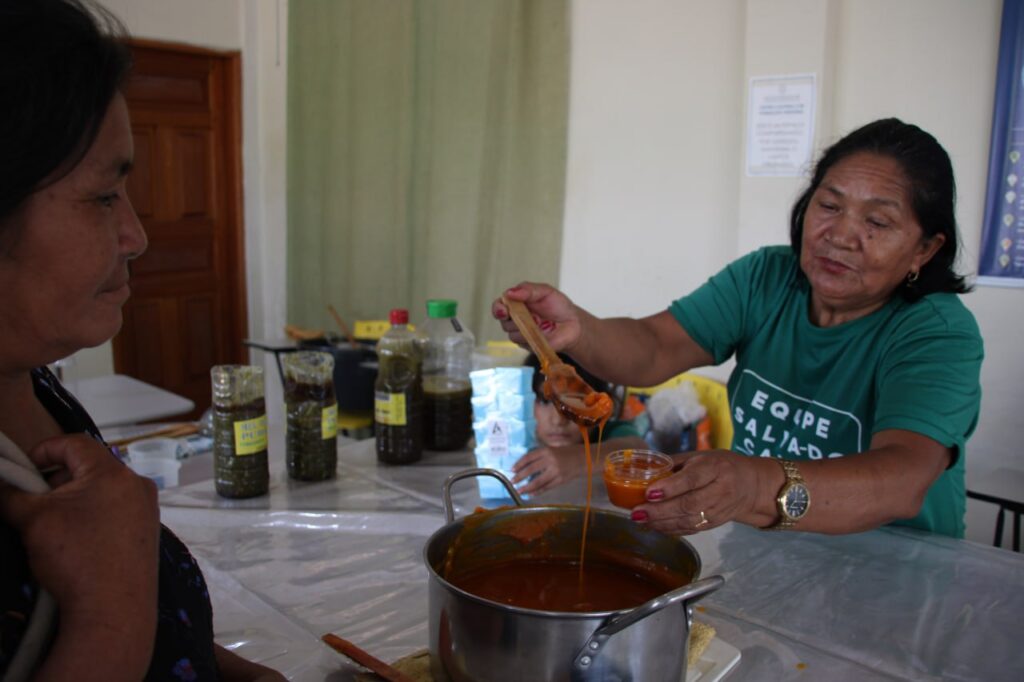
From January to November 2024, the Fraternity – Humanitarian Missions (FIHM) promoted 284 women’s participation in activities aimed at female entrepreneurship, such as courses and mentoring, as well as supporting and accompanying 10 enterprises led by women, encouraging their economic growth and autonomy.
In partnership with the Entrepreneurial Women’s Network Institute (IRME), it carried out training in four modules, focused on empowerment and work tools, benefiting 26 participants with essential knowledge to develop their businesses.
Visibility and Social Impact
The support of the Fraternity – Humanitarian Missions (FIHM) partner organizations has been crucial for the intercultural strengthening and socio-economic inclusion of migrant indigenous communities. Through programs that include computer courses, Portuguese and fair trade, indigenous men and women have been able to improve their employment and social prospects and actively participate in the region’s economy.
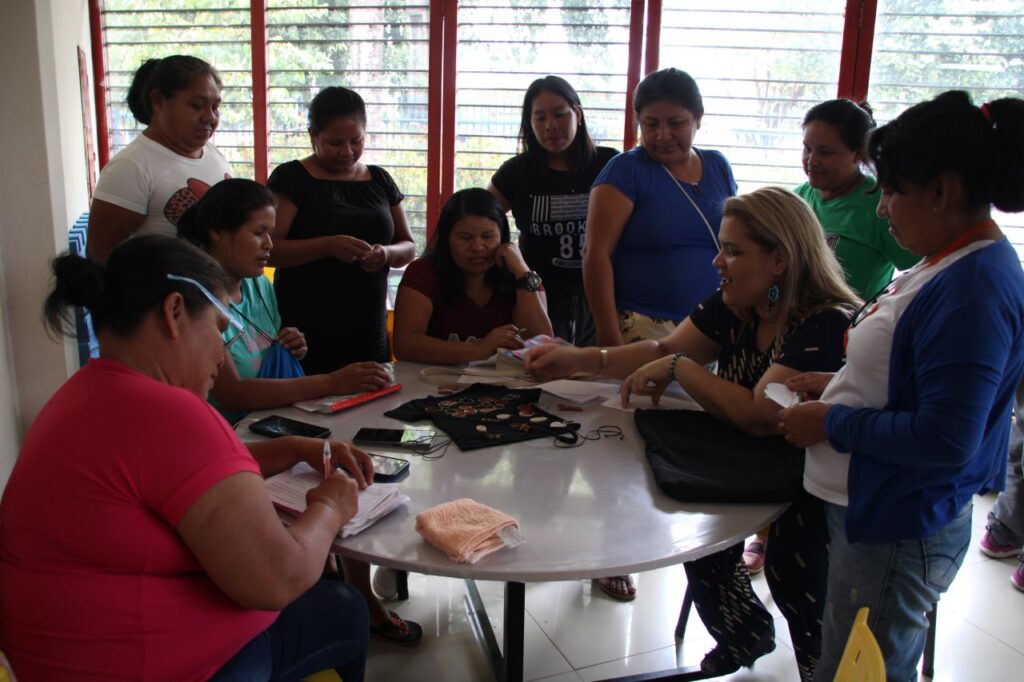
“The activities developed at the CCFI connect digital marketing tools and business models with indigenous manual production, offering opportunities for traditional products to be exposed to a wider audience,” says Andrea, pointing out that “this is reflected in the growing number of women who are spearheading proposals at the indigenous intercultural fair.
A Promising Future
Thanks to these initiatives, indigenous migrant and refugee women are overcoming historical barriers of exclusion and becoming business leaders in their communities. Through their participation in entrepreneurship, they are not only improving their economic conditions, but also redefining gender roles and demonstrating that entrepreneurship is a powerful route to social and cultural empowerment.
“The world of indigenous women is always attentive to needs and complementarity. Indigenous women entrepreneurs are redefining their roles, demonstrating that empowerment comes from within, with a vision of collaboration and mutual support,” Andrea reflects.
